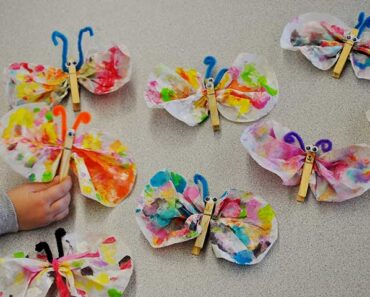Image: Shutterstock
When a child misbehaves, most parents ground them. Grounding kids entails taking away some privileges from them for a specific period so that they can mull over what they have done and find ways to remedy it.
Every parent enforces a set of punishments varying in degree when they ground their children. Some might disconnect the Wi-Fi, others might confiscate their phones, and a few might disallow their children from meeting their friends for a specific period.
When all is said and done, if you are vague about your reasons for grounding them or if you ground them excessively, you are unintentionally doing more harm than good.
In this post, we tell you the common reasons parents ground their children, discuss the side effects of grounding kids, and give you a few tips for grounding your children effectively.
Reasons Parents Use Grounding As A Punishment
Parents use grounding as a punishment for various reasons. The following are the most common ones.
1. Disobedience
If you have told your child to behave in a particular way, and they have deliberately overlooked your instruction, you might have to ground your child.
2. Violence
Some children are violent towards other children. They might bully someone or fight with them. In either case, violence is never something your child should resort to.
3. Disrespect
Sometimes, children answer back or do something out of spite. In such instances, parents may ground their children to teach them some manners.
4. Lying
Some children lie to get out of tricky situations. If your child does it habitually, you might have to consider grounding them.
5. Stealing
Another common issue parents face is their children stealing from them. Stealing is a serious problem and, if left unchecked, can grow. You might consider grounding them to help them curb this habit.
6. Bad habits
Some children get into various bad habits. These habits might be detrimental to their social and emotional development. Parents might resort to grounding to correct a certain habit.
Side Effects Of Grounding Kids
While grounding kids might bring about the result you want, at least when the children are younger, it might have a few side effects when not done right.
1. They might hold a grudge against you
If you have caused them humiliation among their friends by grounding them, your children might hold that as a grudge against you. They might even start comparing you with the parents of their friends. While this behavior is more common in tweens and teenagers, younger children might also harbor similar feelings.
2. They might develop an irrational fear or anxiety
If you ground your child without giving them a proper reason, they might lose their self-esteem. They might double-guess their choices and actions because they wouldn’t know what could earn them a grounding. This constant worry could lead them to develop an irrational fear of punishment and could cause anxiety.
3. They might become defiant
While younger children might be afraid of being grounded, older children, especially teens, might become rebellious as a result of it. They might do things on purpose to annoy you. In general, if you have to ground your child for the same mistake more than two times, it suggests they are not learning from it, and you need to consider other options.
4. They might learn to wear you down
Children have an uncanny knack for repeatedly requesting something that they want until you give in to their request. Once your children know how long you take to break down, they will ask you repeatedly to allow them the thing you have prohibited them from doing. So, it becomes a game for them. If the grounding lasts only until you hold out and not until the specified period you had decided in the beginning, it could backfire.
5.They might get confused
You must try to connect the consequence to the behavior. For instance, if they drop the television remote repeatedly after you have told them to be careful, you can switch off the television. However, if you switch off the television for every sign of misbehavior, they might get confused about why they are getting grounded. They might eventually lose interest in watching television altogether or look for some loophole for watching it, such as watching TV at their friend’s place.
What You Should Do When Grounding Your Child
Grounding a child might seem to be the only way forward for you to discipline your child. However, you need to do certain things to make grounding effective (1) (2) (3).
1. Define conditions and consequences in advance
Instead of issuing vague instructions, such as “Behave well or else,” give your child explicit instructions with the consequences. For example, you can say, “If you drop the television remote, you will not be allowed to watch television for two days.”
Depending on your child’s age, you can increase or decrease the intensity and nature of the punishment. You should also ensure your child is clear about the reason for which they are getting grounded.
2. Focus on short-term expectations
Children may find it challenging to concentrate on long-term goals. Thus, you should give them instructions that they can focus on. Instead of saying, “You should study well so that you do well at the end of the year,” you can say, “Complete this homework today, and you can study for the test tomorrow.”
And when your children complete the required task, acknowledge it. Positive reinforcement is an excellent way to shape good behavior.
3. Start a conversation
If your child has done something wrong, the first thing you should do is to start a conversation with them. Create an environment where they feel safe to discuss with you without the fear of being judged. This is the best way you can offer them advice on the correct course of action.
If your child is worried about you losing your temper, they will freeze and not be open to accepting guidance from you.
4. Ask your child what they think
Let your child talk and express their thoughts. They must have thought in a particular way to arrive at their final decision. This helps you understand what made them perform a specific action.
Although it might be tempting to correct each thought as they narrate it, remain calm and let them finish what they have to say before you offer them advice. Expressing their thoughts out loud could also give your child a new perspective on their actions.
5. Discipline based on intent and not actions
If your child has done something inappropriate in a fit of anger, focus on the intent of the act instead of the act itself. For example, if they have broken something in anger, they should be taught the correct way to handle the anger instead of focusing on the broken item.
This teaches children that while they can vent, they cannot destroy things or harm people. This is another way to teach children that actions have consequences.
6. Ensure that grounding is fair
While you should avoid or limit grounding when children are young, you must make sure that all your children are punished when they act inappropriately – no child should exempt from grounding in case of misbehavior.
It is vital to enforce fairness so that none of your children feel cornered or left out when they are grounded.
7. Do not overdo it
Cutting down on a child’s favorite activities is one of the most effective ways of grounding a child. However, if you overdo it, your child might become resentful instead of learning from the grounding.
You should ground them from people or events they like depending on the nature and degree of their actions.
8. Keep groundings short
Long-term groundings seem to do more harm than good. Children, especially when they are older, find ways to cheat or work their way around the punishment. Also, long groundings do not allow you to reinforce proper behavior.
If your children have done something that warrants a long grounding, you might want to consider other methods for disciplining them.
9. Avoid complete grounding from social media
Even if you find it tempting to stop your child from using social media, it might be detrimental to their social development. Besides connecting with their friends, children also use social media to stay updated on their schoolwork and keep abreast of the news. By taking away their phones or banning the use of social media, you are cutting off all contact.
This could lead to more resentment, and your children might be unwilling to change their behavior. It could also lead to anxiety. Instead, you can allow limited time for access and set certain boundaries during that time.
10. Give them chances to reduce their grounding
Allow your children to “trade” their grounding for good behavior. This might be anything you choose, such as asking them to do chores around the house or complete their homework on time. If your child displays good behavior continuously, you can reduce the period of grounding.
11. Give your child an opportunity to fix their error
When you have talked about your child’s misbehavior, offer them a chance to fix the problem. This will give your child an opportunity to learn the different ways they can fix their mistakes.
For example, if they have hurt a friend at school, let them come up with ways to apologize. They will learn to analyze their actions and reduce things that take away their focus from the important things at hand.
12. Be empathetic
Remember that your child is just a young person trying to navigate their way around the world. Put yourself in their shoes and try to empathize with their situation instead of being angry at them.
When you begin to empathize with your children, you automatically start trying to find ways to rectify the problem instead of shouting at your child and grounding them.
Open communication is the key to a healthy parent-child relationship. Your child will feel more confident about sharing the different aspects of their life with you and come to you willingly for advice.
Grounding kids might seem the best way to enforce rules, but when not done right, it can push your children away from you. Do it reasonably and give your children the chance to learn from their mistakes.
References:
Recommended Articles:


































